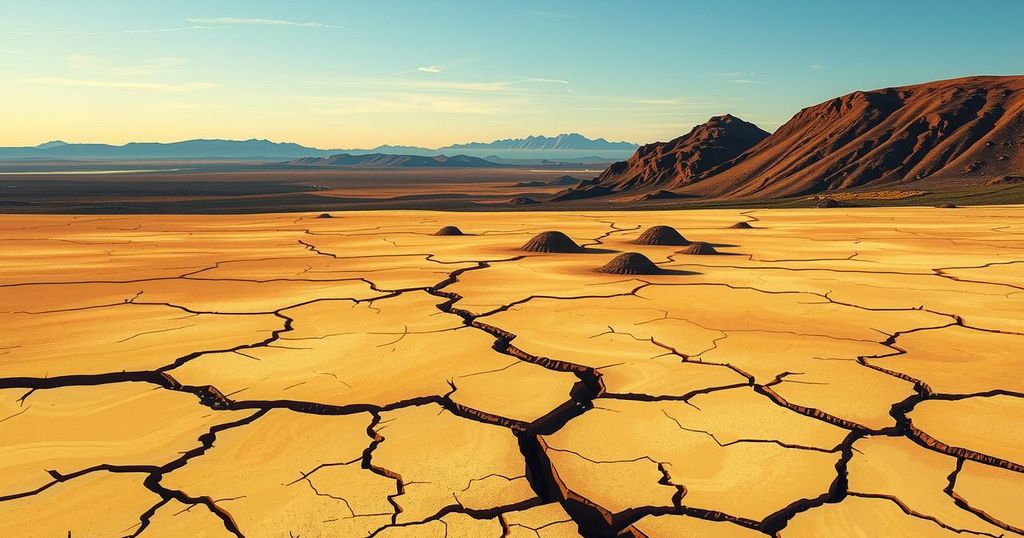Ground Uplift in South Africa Linked to Drought Conditions, Study Reveals
A recent study has determined that South Africa’s ground is rising, not due to geological pressure but rather due to severe drought conditions. The University of Bonn’s research indicates a direct correlation between the loss of groundwater and land uplift, demonstrating a new method for monitoring water levels in real-time without invasive drilling. This discovery redefines scientific perspectives on geological changes and water resource management.
Scientists in South Africa have discovered that the ground is rising at rates up to 2 mm per year, a phenomenon initially thought to be linked to deep geological processes. However, recent research from the University of Bonn has shifted the focus to severe drought conditions, revealing that the lack of groundwater is responsible for this land uplift, not tectonic activity beneath the surface.
The study compares the situation to a foam ball being squeezed: remove the pressure (in this case, groundwater), and the surface quickly rebounds. This “elastic rebound” phenomenon was observed across South Africa from 2012 to 2020, as GPS stations recorded vertical increases of up to 6 mm. This data has ultimately transformed scientific understanding of the region’s geological activities.
Moreover, NASA’s GRACE satellite mission has played a key role in this research, detecting mass loss in soil and groundwater that matches the uplift data collected from GPS stations. Researchers have established a direct link between drought-prone areas and measurable land rise, challenging the previous notion that mantle plumes were causing this uplift.
Particularly notable was the 2015–2019 drought in Cape Town, during which the city faced the threat of “Day Zero”—the point where municipal water supply would run out. During this same period, land in the Western Cape experienced the highest rates of uplift, underlining the correlation between extreme drought conditions and land elevation changes.
As a consequence of these findings, scientists suggest that monitoring shifts in land elevation can serve as an innovative proxy for gauging groundwater loss. This breakthrough offers a non-invasive method for tracking water levels without the need for drilling, which could significantly enhance water resource management strategies.
With the global trend of intensifying droughts, these insights offer an essential framework for understanding water stress not only in South Africa but also in other similarly affected regions—such as California and the Horn of Africa. This research presents an opportunity to address water scarcity issues with a fresh perspective.
In summary, the startling reality of South Africa’s land rising due to water loss signifies a substantial shift in geological understanding, highlighting the importance of environmental conditions over geological ones in explaining certain phenomena. This is not just a local concern, but part of a larger narrative regarding the impact of climate conditions on land and water resources globally.
In conclusion, the recent findings from South Africa reveal that land uplift is directly tied to groundwater depletion caused by drought, rather than deep geological activity. This research not only transforms our understanding of the region’s geology but also paves the way for innovative methods to monitor water resources on a larger scale. As drought becomes more common, it is crucial to adapt strategies for managing water supplies effectively, based on the recognition of these dynamic geological interactions.
Original Source: www.businesstoday.in




Post Comment